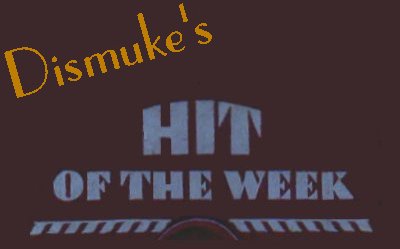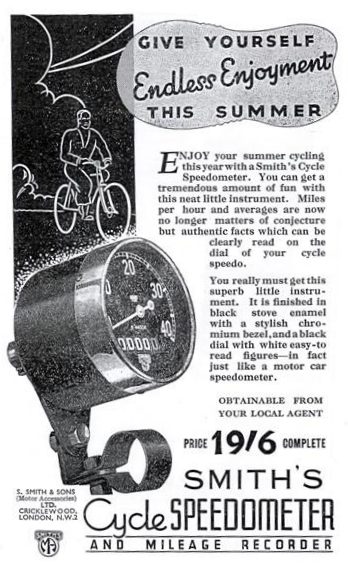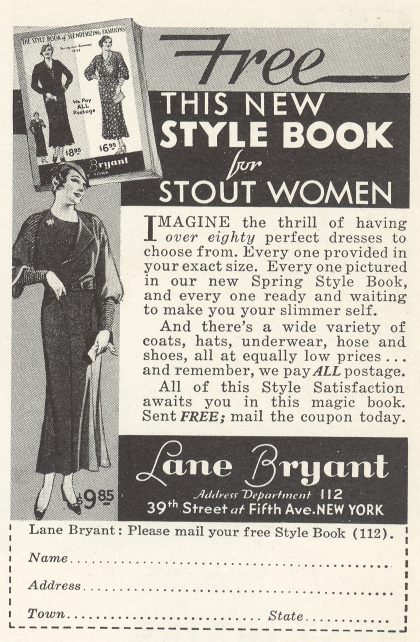

January 2009
January 25
This
week's Hit of the Week is
brought
to you by

Image courtesy of Ted Hayward from the UK
Smith's Cycle Speedometer
(from 1937 British ad)
One
Hour With You
Durium Dance Band
Sam Browne, vocal
1932
(Durium EN 14 mx
1038)
What
Would You Do
Durium Dance Band
Sam Browne, vocal
1932
(Durium EN 14 mx
1038)
She
Didn't Say Yes
Durium Dance Band
Les Allen, vocal
1932
(Durium EN 16 N mx 1040)
Gipsy
Moon 
Durium Dance Band
Les Allen, vocal
1932
(Durium EN 16 N mx 1040)
Here are selections
from two British cardboard Durium records courtesy the collection of
Matt From College Station. Durium Records was the British
branch of the New York based company that produced cardboard Hit
of the Week records for the American market. The British firm
started issuing records in April 1932, just a few months before its
American parent folded due to the difficulties of operating in the
Depression era American record market. The record industry
in Britain was not as badly impacted by the Depression as it was in
America so this perhaps was a factor in the decision to
expand.
As with American Hit
of the Week records, Duriums
were sold through newsstands and booksellers. While the
American records were issued every Thursday, the British company issued
its records on Friday - which was payday for most people. The
British
records sold for one shilling. Ultimately, the effort to
market the records to the British market was unsuccessful and was
discontinued after less than a year.
As was the case with
the American records, Durium records were one-sided and had a playing
time of about five minutes which was approximately twice that of a
conventional 78 rpm side. Durium issues featured two
"tracks"
and heavily advertised the fact that one did not have to turn the
record over in order to listen to both selections. All of
the selections in this update were recorded in London in mid May, 1932
"The Durium Dance
Band" was a generic recording pseudonym credited on most issues.
Several bands were used for the recording sessions. On these
selections the band was Arthur Lally And His Orchestra.
Apart from some groove
damage on the first tracks of each record, the sound quality is quite
good, especially given that they were a cheap, down market product.
"One Hour With You" and "What Would You Do" come from the 1932 Ernst
Lubitsch film One Hour With You
which starred Maurice Chevalier and Jeanette MacDonald. You can
hear MacDonald perform "One Hour With You" in the archived May 15, 2008
update
and Chevalier perform "What Would You Do" in the June 7, 2008 update.
"She Didn't
Say Yes" comes from the 1931 Broadway production The Cat And The Fiddle. A
film version staring Ramon Navarro and Jeanette MacDonald was released
in 1934. "Gipsy Moon" is a slow waltz composed by Swedish
composer Sten Njurling writing under the pseudonym of Igor
Borganoff.
- Dismuke
If you have
questions or
comments about the music or would simply enjoy interacting with
friendly
people who share your interest in it, join in the conversation on Dismuke's
Message Board.
EXTRA
This section
will present
78 rpm recordings that do not fall within the range of the vintage pop
and jazz fare that I usually present. Here I will
feature
recordings from a wide variety of eras, musical genres and
nationalities
as well as occasional spoken word recordings.
Spaß
muß sein Part 1
Paul Godwin mit seinene Jazz Symphonikern
1928
(Grammophon B 61212
mx 19761)
Spaß
muß sein Part 2
Paul Godwin mit seinene Jazz
Symphonikern
1928
(Grammophon B 61213
mx 19761)
Here is a nice medley
of late 1920s German popular songs courtesy Matt From College
Station.
According to Google Translate "Spaß muß sein" means "Must
Be
Fun." I recognize some of the tunes featured but, since I
do
not speak German, I have a great deal of difficulty remembering the
names of German song titles.
Paul Godwin was a
Polish violinist, composer and bandleader born as Pinchas
Goldfein. Godwin
was extremely successful in Germany. Between 1923 and 1933,
his records on the Grammophon label sold over 9 million
copies.
As was typical in Germany at the time, his band preformed a variety of
musical genres. When Hitler's National Socialists came to
power Godwin fled to Holland where he continued his career.
Unfortunately, when Germany invaded the Netherlands during World War II
Godwin came under control of the Nazis and was confined to a Jewish
ghetto in Amsterdam. He managed to go underground and escape the
Holocaust. After the war he mostly focused on classical music and
became a Dutch citizen in 1952.
- Dismuke
January 18
This week's Hit of the Week
is
brought
to you by
 Lane Bryant
Spring 1933 Style Book For
Stout
Women
(from 1933 ad)
Lane Bryant
Spring 1933 Style Book For
Stout
Women
(from 1933 ad)
|
Notice
Starting with this update there is a slight
format change to the Hit of the Week publishing schedule. Ever
since I started
the updates, new updates have been scheduled to be published every
Thursday. This was a nod to the day of the week that new issues
of
the old cardboard Hit of the Week records the updates are named after
became available in newsstands.
While keeping that Thursday tradition up is somewhat charming and
quaint, the fact of the matter is that Thursday is not always a
convenient day for me to publish an update - and, as long time
followers of this site already know, more often than not, the updates
have, in fact, ended up being posted on some other day of the
week.
Long time followers of this site will also know that I have NOT always
been able to consistently publish new updates on a weekly basis.
This is simply because publishing the updates is time consuming and I
have other commitments and interests competing for my limited free
time. Having a self-imposed weekly deadline and the
knowledge that I was not meeting it was starting
to become a bit of a burden.
I do enjoy putting these
updates together and I know that there are a lot of people who follow
them and value them. But I do need to be able to find a way
to continue them in a manner that does not come at the expense of my
other
priorities and interests.
Therefore, going forward, future updates will be published on whatever
day of the week happens to be most convenient for me to put them
up. And they will be published on a much more irregular basis
depending on what else I have going on. Sometimes this will mean that
new updates will be put up on a weekly basis. Sometimes they will
be less frequent. In practice, such a publishing
schedule has already been in
effect for
quite some while now - the difference is that it is now official
policy and I will no longer be back dating my updates to the
previous Thursday and no longer promising another the following
Thursday.
The one hesitation I had about departing from a set schedule was the
concern that regular visitors would have no way of knowing when to
check back for the next update. But, of course, this is an
inconvenience that regular visitors have already been experiencing
lately. To solve that issue, I have added three convenient
methods by which those who are interested can receive instant
notifications whenever new updates are posted. First, I have
added an RSS feed which will enable you to receive notifications
through services such as iGoogle
and many other RSS enabled websites and programs. Second, I have
also set up a Twitter
account to send updates to those who use that service.
Finally, for those who would simply prefer updates to be sent directly
to their email accounts, I have set up an email notification list
that you can sign up for. (Please note that this is an entirely different mailing list than the
Radio Dismuke news updates that many visitors are already
receiving). All three of these methods will spare you the
trouble of having to visit the site to see whether nor not new content
has been posted.
Eventually, my plans for these updates include an upgrade to a content
management software program that will significantly reduce the amount
of time I have to spend putting them together. When I
started these updates, the term "blog" was not part of everyday
vocabulary and most of the software programs that enable people to
quickly and easily publish on the web had not yet been
introduced. I put these updates together the old fashioned way by
doing my own html - which, in this day and age, is needlessly time
consuming. A content management program also allow
guest contributors such as Matt, Eddie and Christian to be able to log
in and post an update whenever they feel like it without having to send
it to me to put together. I can't offer a timetable of when such
an upgrade will take place as shopping around for the best program and
migrating content over to it will be time consuming. But it is in
the works.
The bottom line is I do value these updates and am committed to
continuing them. The new update schedule will provide me
with the much-needed flexibility to do so. And the new
notification methods should make it easier than ever for regular
visitors to keep up with the site.
- Dismuke
|
Sun
Spots
Paul Whiteman And His
Orchestra
1934
(Victor 24574-A)
The
Bouncing Ball
Paul Whiteman And His
Orchestra
1934
(Victor 24574-B)
Let's
Put Out The Lights
Paul Whiteman And His
Orchestra
1932
(Victor 24140-A)
You're
Telling Me 
Paul Whiteman And His
Orchestra
1932
(Victor 24140-B)
Here are a couple of
records I recently
acquired.
Paul Whiteman is best
remembered
for popularizing jazz inspired dance band music in the 1920s, a
decade
during which he was the most famous and financially successful American
bandlader. The onset of the Great Depression had an
especially
heavy impact on the Whiteman band when new bookings suddenly dried up
and
Old Gold Cigarettes decided not to renew its sponsorship of
Whiteman's
lucrative network radio program. To make things worse, the
Universal Pictures musical talkie King of Jazz starring
Whiteman
and the band did not perform well at the box office.
Whiteman
was forced to cut musicians, reduce pay and to accept bookings that
once would have never been considered. Because of the
impact of the Depression on Columbia Records, the Whiteman band did not
cut any records for an entire year until Victor bought out his
recording
contract in late 1931.
Eventually, Whiteman
was able to
land new radio sponsorships and managed to avoid the "has been" status
that other 1920s stars had been relegated to. One of the
ways
he managed to do so was by adapting to the era's rapidly changing
musical
styles. When the swing era came along in the late
1930s,
Whiteman solved the problem of whether to focus on a younger crowd at
the
expense of long time loyal listeners by forming a sub band
within his larger organization which he named his "Swing Wing."
Whiteman recordings
from the early
1930s tend to be somewhat difficult to come across simply because few
people
at the time could spare much money for records.
"Sun Spots" and "The
Bouncing Ball"
are both very peppy, upbeat compositions by Frankie Traumbauer who is
also
featured on the saxophone on both recordings.
"Let's Put Out The
Lights" features
a vocal performance by Ramona Davies who had recently signed on as
Whiteman's vocalist and
piano
soloist. "Ramona And Her Grand Piano" became a regular
feature on Whiteman's radio programs. While "Let's Put Out The
Lights" was recorded by a number of
artists,
it was most famously associated with Rudy Vallee. I have
read
that the song's lyrics originally read "let's put out the lights and go
to bed" but NBC executives considered them to be too risque for
Vallee's Fleischmann's
Yeast Hour radio program which led to them being changed to "let's
put out
the lights and go to sleep."
"You're Telling Me"
features a vocal
by Whiteman's new Rhythm Boys - a replacement group for the
original
Rhythm Boys of Bing Crosby, Harry Barris and Al Rinker . The new
Rhythm Boys consisted of Ray Kulz, George MacDConald, Al Dary and Jimmy
Noel.
- Dismuke
If you have
questions or
comments about the music or would simply enjoy interacting with
friendly
people who share your interest in it, join in the conversation on Dismuke's
Message Board.
EXTRA
This section
will present
78 rpm recordings that do not fall within the range of the vintage pop
and jazz fare that I usually present. Here I will
feature
recordings from a wide variety of eras, musical genres and
nationalities
as well as occasional spoken word recordings.
Grüss
Mir Die Sonne Von Italien
Barnabas Von Geczy And His
Orchestra
1935
(Disque Gramphone K 7634
mx ORA
396)
Was
Schöne Frauen Träumen
Barnabas Von Geczy And His
Orchestra
1935
(Disque Gramphone K 7634
mx ORA
435)
Here are a couple of
nice tango
recordings from Germany. Tango was very popular in Europe
in
the 1930s, especially in Germany and Poland - and I tend to prefer the
European tango recordings of the era over those I have heard from
Argentina.
Von Geczy was a Hungarian born violinist who led one of the more
successful
and well known salon orchestras in Europe.
- Dismuke
If you have
questions or
comments about the music or would simply enjoy interacting with
friendly
people who share your interest in it, join in the conversation on Dismuke's
Message Board.

|




